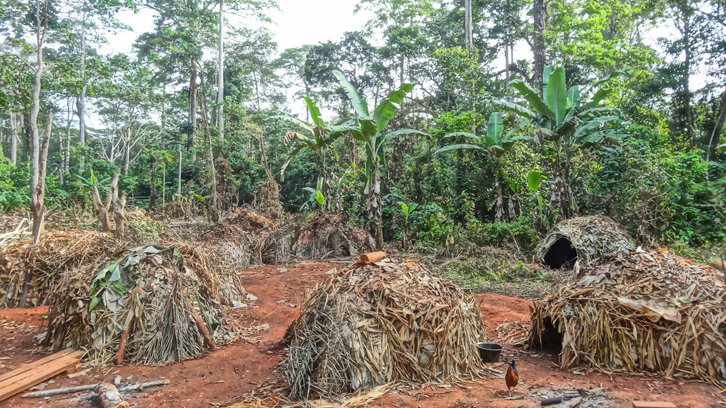Social Networks and Knowledge Transmission among Baka Children, Southeastern Cameroon

Studying the transmission of traditional knowledge helps to understand how cultures evolve. Which knowledge is maintained? Which one does change or disappear? In the current context of ecological and social changes, how do cultural knowledge and practices change in societies whose subsistence depends intimately on the environment?
In hunter-gatherer societies, knowledge is transmitted without written support. The transmission of knowledge is done through observation, imitation and oral indications. Thus, the acquisition of knowledge occurs during activities such as hunting, fishing, gathering plants, or household maintenance. Changes in this way of life can generate changes in the way knowledge is transmitted.
To understand the current mechanisms of transmission of traditional ecological knowledge, in this research we work with children and adolescents of a society of hunter-gatherers in the Congo basin, the Baka of Southeastern Cameroon. Nowadays, the Baka are exposed to many changes related to the arrival of sedentarization programs, the adoption of agriculture, and the growing arrival of actors in its territory.
We collected information on the daily activities of 58 boys and girls between 5 and 16 years of age. In particular, we study the composition of groups of children during activities in which there may be transmission of traditional ecological knowledge: hunting, gathering, fishing, and agriculture. When analyzing the relationships between individuals during the different activities, we observed that the composition of the groups varied from one activity to another. The diversity in the composition of the groups suggests that there is no single form of knowledge transmission, but that different types of knowledge are acquired in different ways and from different people. Another important finding of this study is that children perform many activities among themselves, without the intervention of adults, which highlights the central role of children in children’s learning, an aspect little studied so far.
Washington University1
Faculty of Archaeology
University of Leiden2
Area of Social Anthropology
Department of Social and Cultural Anthropology
Universitat Autònoma de Barcelona3
Area of Social Anthropology
Department of Social and Cultural Anthropology
Researcher linked to ICREA at ICTA
Universitat Autònoma de Barcelona4
References
Reyes-García, Victoria & Powell, Bronwen & Díaz-Reviriego, Isabel & Fernández-Llamazares, Álvaro & Gallois, Sandrine & Gueze, Maximilien. (2019). Dietary transitions among three contemporary hunter-gatherers across the tropics. Food Security. DOI: 10.1007/s12571-018-0882-4.

